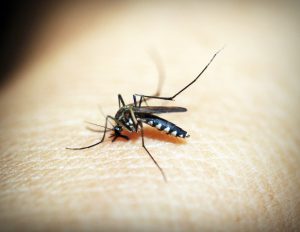Basic Internet browsing and safety tips for kids, teens and adults that will help boost overall safety and privacy online.
I make an effort to only allow links to quality websites from this fansite, but there are still untrainable and unfriendly dragons out there, so it’s always good to be aware.
Hiccup loved dragons, but even he was mindful with new ones.
Due to safely working with (high-voltage) electronics and computers since I was six years old (without getting badly zapped) and Internet-stuff now being my profession, this is a pretty important and big subject for me; I want to share some good advice to help keep you safe as well. Safety is metaphorically, one of my middle names (along with “hairy” and “handsome” haha).
It’s best not let the few bad guys on the Internet make one overly cynical or too careful. Overall, the Internet is an amazing, useful and even fun tool. Learning from quality, balanced and independent sources of information about how to deal with the potential dangers, frees you up to enjoy the good things when you find them.
 Sometimes it’s easy to be overwhelmed by all the warnings and advice out there, but there are some basics that almost everyone can agree on. Here’s some basic good advice from myself and by experts-in-their-field that I’ve collected, looked over and grouped, for browsing the Internet better. All links in this post open a new browser window:
Sometimes it’s easy to be overwhelmed by all the warnings and advice out there, but there are some basics that almost everyone can agree on. Here’s some basic good advice from myself and by experts-in-their-field that I’ve collected, looked over and grouped, for browsing the Internet better. All links in this post open a new browser window:
General good advice
 The following Internet safety tips are from the “National Children’s Advocacy Center”, found at: https://www.nationalcac.org/internet-safety-tips/
The following Internet safety tips are from the “National Children’s Advocacy Center”, found at: https://www.nationalcac.org/internet-safety-tips/
Internet Safety Tips for Kids and Teens
- Spend time having fun with your parents online and helping them understand technology!
- Never post your personal information, such as a cell phone number, home number, home address, or your location on any social networking site or through mobile apps like Snapchat or Instagram. (You also shouldn’t mention such information on forums, chats, emails and private messages – and that includes this website as well.)
- Never meet in person with anyone you first “met” on the internet. If someone asks to meet you, tell your parents or guardian right away. Some people may not be who they say they are.
- Check with your parents before you post pictures of yourself or others online. Do not post inappropriate pictures of anyone. (A good guide to what “inappropriate” means, would be any pictures of yourself/family that you probably wouldn’t want to be shown publicly, or be seen by strangers in the future.)
- Never respond to mean or rude texts, messages, and e-mails. Delete any unwanted messages. You may need to delete friends who continuously bother you or post things that are not appropriate.
- NEVER share your password with anyone, including your best friend. The only people who should know your password are your parents or guardian.
- If you wouldn’t say something to another person’s face, don’t text it or post it online. (This advice is a little ambiguous, likely suggesting that one should act on the Internet with the same civility and respect, that you would want from them as well. Also, not to feel that you can say personal or nasty things on the Internet that you wouldn’t say directly to people. The Internet is not as anonymous and private as you might think, and being very mean could get you into trouble.)
- Do not download or install software or anything on your computer or cell phone before checking with your parents or guardian.
- Use the privacy settings of social networking sites. (To tighten privacy and reduce public/advertiser access to your personal information. Best would be to not use social networking websites in the first place, or only very sparingly – there are lots of people not using social media, myself included, and I’m a web-guy!)
- If anything makes you feel uncomfortable online, while gaming or when using your cell phone, talk with your parents or guardian right away. (If they’re not available, consider taking a screenshot/photo for evidence and closing the app/program, or just walking away.)
 By the way, some other trusted websites which have online safety tips for young people, suggest that if you’d like more privacy regarding your passwords, that you discuss with your parents the idea of writing the passwords inside a sealed envelope to only be opened in an emergency.
By the way, some other trusted websites which have online safety tips for young people, suggest that if you’d like more privacy regarding your passwords, that you discuss with your parents the idea of writing the passwords inside a sealed envelope to only be opened in an emergency.
Also, these websites suggest that instead of never meeting anyone online, that instead you discuss involving everyone’s parents, and meeting in a public place.
Personal things like saying what clubs you visit or sports events you go to are probably too personal to mention.
However, I feel that mentioning what state and country you’re in should be okay (I live in South Australia) but your parents always have the final say (until you’re 18)!
Finally: never make yourself out to be an adult on a website, when you’re not – don’t try to sneak past age restrictions. Minors generally have additional legal protections, and they are there for good reasons – enjoy these protections while you can, as being an adult (with resulting commitments and responsibilities) isn’t always as fun as it might seem.
 The following tips are likely more aimed at teenagers and adults, and can be found as full blog posts on the Emsisoft website. I have compiled the information from two of their blog posts, which make for interesting reading: https://blog.emsisoft.com/en/32571/10-internet-security-tips-to-make-2019-your-most-cyber-secure-year-ever/ and https://blog.emsisoft.com/en/28800/stay-safe-online-top-tips-internet-safety/
The following tips are likely more aimed at teenagers and adults, and can be found as full blog posts on the Emsisoft website. I have compiled the information from two of their blog posts, which make for interesting reading: https://blog.emsisoft.com/en/32571/10-internet-security-tips-to-make-2019-your-most-cyber-secure-year-ever/ and https://blog.emsisoft.com/en/28800/stay-safe-online-top-tips-internet-safety/
- Make multiple backups (Backup on different hard-drives/USB-sticks at different times.)
- Splash out on a VPN subscription (A quality VPN will help improve overall privacy and also security over Wi-Fi.)
- Use two-factor authentication wherever possible
- Don’t forget securing your IoT devices (Smart TVs, gaming consoles, etc.)
- Start using a password manager (Use a different password for each website/account you have, then use password manager software to maintain the list of passwords/accounts.)
- Encrypt your flash drives and external HDDs (Look for “open source” or free without ads software.)
- Install an ad blocker (Good ad blockers are surprisingly effective at preventing a lot of viruses and tracking.)
- Be more mindful on social media (Don’t share things that could reveal your address or workplace, avoid downloading videos/apps and clicking on shortened website links from unknown sources, etc.)
- Don’t forget about your mobile device (They also need to be secured.)
- Be wary of public Wi-Fi (Generally, it’s pretty insecure and requires extra protection measures, such as using a VPN.)
The actual blog posts go into more detail – consider checking them out some time.
Protection from viruses, phishing and malware
 There are so many disturbing reports to find, of people’s computers, smartphones and other Internet connected devices getting infected with nasties.
There are so many disturbing reports to find, of people’s computers, smartphones and other Internet connected devices getting infected with nasties.
This is a huge and serious subject, and a problem that has only gotten worse over the years.
Some basic and solid advice is to:
- Be educated (by reading quality unbiased guides on Internet safety) and aware of your actions on the Internet (don’t browse to new websites when very tired or not concentrating)
- Keep software updated
- Stay away from shady websites with shady offers (such as illegal torrents or warez sites)
- Avoid installing lots of unnecessary software/apps (with shady privacy practices)
- Use different passwords and email addresses for different websites
- Install ad-blocking and privacy-boosting browser plugins, such as uBlock Origin (set and forget, but powerful), Cookie AutoDelete (useful and makes privacy easier), and Privacy Badger (works for you in the background)
- In addition, you could also add uMatrix (for advanced users only) and Decentraleyes (easy, handy, and set-and-forget) – all of these plugins can be used together without issues
- Because most web browsers themselves spy on user’s browsing habits (something that only fairly recently started happening), the “Privacy Settings” plugin will help reduce that practice – you may need to change some settings, to use some websites such as PayPal, banking, web email, gaming and WordPress and web host administrator sections (the plugin has easy-to-select presets for these situations)
- Be wary of emails you receive and not click their links – it’s safest to set your email program to only display emails as text and not HTML
- Don’t become overly cynical or overly careful, as (paradoxically) that can make you more accepting of the “higher-quality” scams/attacks that one can sometimes get exposed to on the Internet.
 Life is busy, so a lot of people rely on others (such as overly invasive security software and new/tightening laws) to give themselves a false sense of security – even those things often won’t help. For the time being, I recommend Malwarebytes Anti-Malware which can be used for free with reduced features. Scan every new file for malware before running/opening it.
Life is busy, so a lot of people rely on others (such as overly invasive security software and new/tightening laws) to give themselves a false sense of security – even those things often won’t help. For the time being, I recommend Malwarebytes Anti-Malware which can be used for free with reduced features. Scan every new file for malware before running/opening it.
The articles below are fairly dismissive of most anti-virus and security software, as am I also, now that a good portion of (paid and free) security software has become a privacy and security risk in itself – learning to rely on your own good judgment cannot be replaced by security software/tighter laws/whatever:
restoreprivacy.com/antivirus-privacy/ – This article mentions the privacy and even security problems involved in using antivirus and security software.
blog.emsisoft.com/en/17153/antivirus-software-protecting-your-files-at-the-price-of-your-privacy/ – This article was written by an antivirus company, so it’s likely biased, however it also happens to make good points.
The following rather lengthy article, is helpful for learning to recognise and prevent phishing attacks:
https://www.malwarebytes.com/phishing/
 It’s impossible to know about every possible Internet danger, so computer problems happen to people that are absolutely no fault of their own, after which they’ll need good software and possibly also assistance to help clean things up.
It’s impossible to know about every possible Internet danger, so computer problems happen to people that are absolutely no fault of their own, after which they’ll need good software and possibly also assistance to help clean things up.
The following forums are quality sources of security information, and assistance if you suspect your computer or smartphone/tablet has been infected – make sure you read their “welcome” or “read me first” guides if you need help:
www.techsupportforum.com/forums/ – Huge, and covers topics you likely didn’t even know existed. Have interesting how-to guides as well.
malwaretips.com/ – Focuses more on security software and related discussion, with how-to guides for many devices and operating systems.

forums.majorgeeks.com/ – Smaller and more personal, often getting faster responses to requests for compuer/smartphone and virus assistance. Stands out from the crowd, but in a good way – a bit like a special geeks-only treehouse, and you’re invited for the day.
Hope you like prune juice!
www.wilderssecurity.com/ – Heavy focus on computer security and privacy with lots of news, guides and information.
It’s easy to get overwhelmed with information in such places – take things slowly and easy, and look at multiple sources of information on the same subject. Take your time and don’t worry too much or get caught up in things – that’s when complacency as a coping mechanism sets in. Basic and solid security practices are always better than many loosely-followed ones, or none at all.
A better type of protection from Internet viruses, malware, ransomware, hacking and more!
 Having said all that, I’ll share with you here the single most important advice that has helped me to never get hacked or get a virus (with a single exception), in the last 22+ years I’ve been using the Internet:
Having said all that, I’ll share with you here the single most important advice that has helped me to never get hacked or get a virus (with a single exception), in the last 22+ years I’ve been using the Internet:
Compartmentalisation of my computers, phones and Internet accounts/emails/profiles – using only a certain computer or smartphone for a certain subject or set of tasks.
 I use three different sets of computers/smartphones for work/study, general browsing and home computing/file storage. In other words: not putting all eggs in one basket!
I use three different sets of computers/smartphones for work/study, general browsing and home computing/file storage. In other words: not putting all eggs in one basket!
For higher-risk activity such as online gaming and social media use, using a separate computer only for those things should also be considered.
Whenever possible, I either use a payment service such as PayPal or disposable Visa debit cards for online purchases, which costs a little more, but offers more privacy and security.
One time, after paying for a popular online office work-related service with a disposable debit card, I noticed unusual charges on that card after checking the transaction history – had I used my actual bank-issued card, I would have had to go through the trouble of reporting those charges to the bank, filling out all kinds of paperwork and probably getting a new card.
Because the disposable card didn’t have a lot of money remaining on it anyway, the financial loss was minor.
Clearly the service I had used, didn’t have the best security practices in place (it later shut down, but had good reviews before then). Because I had only supplied the service with the minimum of personal details, a unique password and email address only used for that service, and a disposable debit card also only used for that service, the scale of the privacy leak/breach was greatly minimised.
Sounds a lot better than having your bank account drained and every other online account of yours hacked and ransacked, because you used the same passwords/emails/cards/computers for all services! I personally know a lot of people who’ve had such things happen to them, and perhaps you do too.
There’s no need to be frozen by concern, though!
 Using separate computers (and accounts/emails/passwords) is easier than you might think, and also helps you concentrate on the particular task at hand.
Using separate computers (and accounts/emails/passwords) is easier than you might think, and also helps you concentrate on the particular task at hand.
When you’re done working on one computer, and want to wind down and relax more quickly on another, then it’ll be easier: it’s like flicking a (light) switch from “work”, to “relax/play”.
All my computers and smartphones still have the basic security software installed, and I still follow basic security and backup practices on each device. (Firewalls, antivirus, backups, software updates and sensible browsing and security/privacy settings and plugins.)
 The only computers and smartphone/tablet that never get any Internet connection are the home computing/file storage ones – they are completely and forever disconnected from the Internet.
The only computers and smartphone/tablet that never get any Internet connection are the home computing/file storage ones – they are completely and forever disconnected from the Internet.
It never made sense to me, with all the potential weaknesses and bugs in operating systems and software, to connect a computer with all of my most precious and personal memories, work and library/studies to the (sometimes unfriendly) Internet!
There’s truly no good reason to do it. The only good time to connect the main/home computer to the Internet is when first setting it up with all the required software and updates, before adding anything personal.
No matter how badly you get hacked on your Internet-connected devices, your most important computer is guaranteed to not get hacked, because it’s not connected to the Internet – not connecting to the Internet is the only way to guarantee not getting hacked over the Internet. Makes sense, doesn’t it? 
Of course, there’s a complication and an obvious risk:
Transferring files to/from each device (complication), and making sure the files are genuine and not infected with a virus (risk).
Complication:
Transferring files between each device. Once it’s a habit, it’s perfectly easy to copy all downloads and emails/letters from the Internet-connected devices, to the Internet-disconnected home computer. You can copy the files with a memory stick (best) or direct cable connection (also good).
When you transfer files on a memory stick or external hard drive, you should encrypt them first in case you lose the memory stick/hard drive – happened to me once and can happen to anyone.
In all the years of working on websites, graphics, videos, software, desktop publishing and my studies, have I never been held back by this practice – in fact it made it easier for me to concentrate on various tasks.
Risk:
Transferring viruses between devices. Even if you have antivirus software installed, a virus can still be copied from one computer to another. You could still infect your disconnected home computer with a virus that might damage or delete files. Most viruses/ransomware/malware however these days require an Internet-connected machine to do their most damage. What’s the solution? You can still have antivirus software on the home computer, and keep multiple backups of your files.
Another risk, is that if you copy files from one computer/device to the other using a memory stick/hard drive, then the files will still remain on that memory stick/hard drive, even if you delete them (the files need to be wiped, not deleted).
The files can later be recovered with file recovery software, if only deleted – important to know if you copy personal emails, financial data, etc. A good solution is to encrypt the files (automatically or with encrypted .ZIP or .RAR files), so then it won’t matter if they get recovered, as they’ll just be an encrypted mess.

Keeping multiple backups has saved me once, 21 years ago, when my main computer was infected with a sneaky virus that I hadn’t downloaded from the Internet, but instead came on a CD-ROM from a popular and professional computer magazine! I had Norton AntiVirus software installed, but this virus was very advanced and remained undetected – it infected my computer, and then zero-filled (emptied) the files that I was backing up, as well as my actual backups! The files themselves were still visible in the files listing (Explorer), but filled with useless junk.
 The only reason I was able to recover from this, was because I kept multiple backups of the same files on multiple disks and burnt CDs.
The only reason I was able to recover from this, was because I kept multiple backups of the same files on multiple disks and burnt CDs.
I did however still lose five days of work! That was the last time I ever used that antivirus program, but several others also wouldn’t have detected this virus at the time.
 Finally, because of the (bad and risky) move towards making computer software and operating systems always-connected and dependent on the Internet (cloud-this, IoT-that), it’s become harder to keep a disconnected computer/workstation updated and running with modern and functioning software.
Finally, because of the (bad and risky) move towards making computer software and operating systems always-connected and dependent on the Internet (cloud-this, IoT-that), it’s become harder to keep a disconnected computer/workstation updated and running with modern and functioning software.
This is another big subject, but still not that difficult to manage (yet). If there’s enough interest, I’ll write up another guide on how to successfully keep your computers separate and still fully updated with the latest software.
Better for you
The good thing about simply keeping things on separate devices, is that you don’t really have to learn anything new; you install the same or similar software, use it in the same way, but just use it on different devices for different tasks.
You could even cut down on e-waste by “recycling” your older computer/hardware for your less demanding tasks – that way you won’t need to buy anything new in order to start compartmentalising your digital life.
It could be easier to separate your digital life into various categories, devices and profiles than you might think:
Remember: Work/study, general browsing, and home computing/file storage.
Staying safer with Linux
 In the recent years, my Internet-connected computers have exclusively been running on Linux, as I had grown tired of constantly keeping Windows secured. Linux has become so advanced and easy to use, that for almost all tasks it’s more than sufficient – it’s also significantly more secure, privacy conscious and free! How often do you get something that’s better, but for free?
In the recent years, my Internet-connected computers have exclusively been running on Linux, as I had grown tired of constantly keeping Windows secured. Linux has become so advanced and easy to use, that for almost all tasks it’s more than sufficient – it’s also significantly more secure, privacy conscious and free! How often do you get something that’s better, but for free?
Note that some popular Linux distributions are becoming less privacy conscious and less free, in favour of chasing profits! What’s the point of going with Linux, if it’s starting to behave just like what you’re trying to move away from?
For the time being, I recommend Devuan Linux or MX Linux – I use both, and feel that the mentality behind these Linux distributions seems to be “down-to-earth, no-nonsense” and not out for a quick and dirty buck.
If installing Devuan Linux, I suggest you deselect the “Devuan Desktop Environment” and instead choose “Cinnamon“, as it’ll be easier to configure and more familiar for Windows users, in my opinion.
MX Linux is probably a bit easier to install and use than Devuan Linux, but MX Linux is generally unable to “hibernate” to disk, however it can “suspend” to RAM.
In the future, I’ll update this blog post with guides on how to smoothly install Linux without too much trouble. You could experiment with Linux on a spare computer.
It’s amazing how few easy-to-understand guides are available – most are overly complicated, sometimes to the point of even making my own eyes glaze over.
Maintaining privacy
 Before the “acceptance” of social media, privacy was actually still demanded of major Internet corporations and also in most ways, still granted. Today’s Internet-connected kids, as well as some of their younger parents, are too young to remember the days of the Internet when privacy was (mostly) respected. Things that are commonplace today, would have been serious scandals only a few years ago.
Before the “acceptance” of social media, privacy was actually still demanded of major Internet corporations and also in most ways, still granted. Today’s Internet-connected kids, as well as some of their younger parents, are too young to remember the days of the Internet when privacy was (mostly) respected. Things that are commonplace today, would have been serious scandals only a few years ago.
The Internet still worked just fine back then, as well!
It’s astonishing, the amounts of “paid experts” writing for the Internet and magazines that completely ignore the subject of privacy or act as though changing a setting or two is enough and write an article on that, and even claim that “privacy is dead, so we might as well accept it”. Privacy is slowly dying, but it’s still far from dead.
 Being mindful of your privacy, will actually help protect you from hacking, ransomware, viruses and many other Internet nasties.
Being mindful of your privacy, will actually help protect you from hacking, ransomware, viruses and many other Internet nasties.
A lot of the things that improve your privacy, close the door to exploitation from hackers/crooks as well. Therefore, there’s no good reason not to take a keen interest in maintaining one’s privacy on the Internet.
If you look at quality guides on privacy, and then at guides on Internet security, you’ll notice just how many similarities there are between them:
For example, a quality guide on Internet privacy may recommend that people install ad-blockers, to help prevent spying/tracking ads.
Another quality guide on Internet security, may recommend that people install ad-blockers, to help prevent getting viruses/malware from malicious website ads.
Once again, this is a massive subject, so again I’ll just give some basic tips (in my next update of this post) and leave some links to quality sources of information, such as the following:
www.eff.org/issues/student-privacy – While eroding the privacy of adults to make some quick (billion) bucks is one thing, what really gets my goat is the systematical eroding of the privacy of increasingly young children to make even more quick bucks.
Children should be allowed to remain in their small and private world until they’re old enough to safely step out of it on their own. The EFF website will throw a light on the subject and help with offering some reasonable solutions.
www.privacytools.io/ – Free, quality and also reasonably-priced tools and services that respect your privacy. Don’t be overloaded by the choices – if you want, take things nice and slow, and at your own pace. Sometimes these tools are not as easy to use as those that sell your personal information.
www.expressvpn.com/blog/ – Privacy and security related news and tips, by a VPN company (so they will offer their service to you), but the advice they give is sound, and doesn’t require the use of their service.
www.nordvpn.com/blog/ – Same as above.
The actual meaning of “privacy” on the Internet is being changed
Major Internet/tech corporations who became wealthy, partly by trailblazing several now-commonplace methods of reducing user/customer privacy, are now becoming even wealthier by advertising their apparent “respect for user/customer privacy” and creating an illusion of personal control over one’s personal data.
One of these “illusions” is having privacy settings or features on their services and products, that don’t actually do much and still allow tracking/selling/renting your personal data, no matter what settings you change.
There’s good money in selling/renting peoples’ personal data – billions, in fact (depending on how much data there is available to sell/rent) and it’s difficult to give up old habits.
It’s not in these corporations’ best interest to give up the things that made them wealthy and influential in the first place. They may simply talk about privacy, offer some mostly useless settings/features, and continue more-or-less just as before.
Changing a little privacy setting here or there, is far less effective than not trusting such corporations with personal things you wouldn’t want shared or processed in any way, in the first place.
It’s best to find workable privacy-conscious alternatives to trusting such corporations with one’s personal data, or at least remaining mindful and keeping the information one shares to a minimum. There’s also good money in not selling/renting peoples’ personal data.
Most people don’t (and never did) want their personal details processed/sold/rented, and companies/services that don’t do this are becoming more valuable and sought-after, as a result.
In case you want to use a VPN service:
 I have mixed feelings about VPN (Virtual Private Network) services, because they may create a false sense of security, or may not be as secure as one expects.
I have mixed feelings about VPN (Virtual Private Network) services, because they may create a false sense of security, or may not be as secure as one expects.
A good VPN service will make your connection to the Internet more “vague” and less personal, and may also prevent some of your personal data, such as browsing habits, getting collected and sold/rented to advertisers.
VPNs won’t make you anonymous or stop tracking(*), this is a complicated subject, and that’s not what they’re designed to do anyway – they’re just one of many privacy/security tools available.
When you shouldn’t use a VPN
You can’t use PayPal and most online banking with VPNs, as they’re blocked or against PayPal/bank’s terms of service.
For example: if you connect through a VPN, then the payment service/bank will have less certainty that it is in fact you, logging into your account, to use their service. Your computer/smartphone connection to their service becomes less personal, and more vague. That’s why to reduce the risk of someone else (hacker, etc.) using your login details to log into their service and spending your money, they block VPNs.
If you use any Internet service that requires any form of payment (such as phone company, web hosting or online gaming) I suggest you don’t use a VPN and only log in over your trusted home Internet connection. If any crook/hacker used the same VPN that you are using to do some shady stuff on those websites, then the tech-people from the service you are logging in to might think that the crook/hacker has broken into your web account!
You may end up being forced to reset your password or send a photograph of your ID (you should cover up your face photo, social security number and street number regardless, in my opinion, but also avoid sending a photo of your ID if at all possible).
VPNs, cookies and caveats
(*) Usually the “modern” Web browsers and operating systems are those who are constantly leaking private information to advertising-type companies, making the VPNs less useful, but that may be a subject for a future update to this blog post. (see Planned Updates & Updates Log)
When it’s the actual web browser and operating system that leaks your information directly to advertising-type companies, then connecting through a VPN becomes less useful, because these advertising-type companies use advanced software to piece together various bits of information from different sources. Those various bits of information are tied back to you, and then sold/rented onwards.
It’s important to know that if you are logged in to major services such as those by Google or social media like Facebook, Twitter, etc. then using a VPN still won’t prevent them from tracking you throughout the Internet in various ways – it’s best to log out and delete their cookies regularly regardless, and then delete their cookies before logging in again.
These kinds of companies set cookies on your browser when you visit websites throughout the Internet, even when you’re logged out of their services. Then when you log in, they connect the information they have gathered about you, while you were logged out – it’s as though you never logged out in the first place! There are many other ways to track you throughout the Internet, but clearing your cookies often, makes it more difficult.
You’ll need to “disable WebRTC” in your browser, and use a “DNS leak test” to make sure the VPN connection is set up correctly – otherwise personal information (such as which websites you visit) can still be leaked.
My own VPN experience
Personally, I’ve tried www.VPNArea.com, www.VPN.ac, www.ZorroVPN.com and www.ProtonVPN.com. They all worked just fine. Definitely use a VPN if you connect over free public Wi-Fi, because free Wi-Fi is almost always monitored or insecure in some way! Never ever use a “free” VPN, as they must sell your private information to actually function themselves.
A VPN service that offers a limited free service to attract customers (such as www.ProtonVPN.com) may be a positive exception, but not always – check their privacy policy to see if they sell/rent the information gathered by their limited “free” service.
You can find reliable reviews on VPNs and email services here:
www.thatoneprivacysite.net – This is a website owned by someone who doesn’t accept any affiliate links or kickbacks for his reviews. The owner goes to some serious lengths to test these services, and then map his findings on a browsable and downloadable table.
www.restoreprivacy.com – Here is the only other VPN review website I’ve found that’s worth looking at. Almost every VPN review website appears to be purely driven by profit, and the money these websites receive from affiliate links and advertising.
This website also has affiliate links, but unlike most other websites (including big review/news/media websites), the site owner appears to mostly (or perhaps completely) be influenced by the facts available to him, rather than by profit.
You have to trust someone:
ISPs (Internet Service Providers) are increasingly showing interest in tracking/using their customers’ website browsing habits to sell/rent this information onwards. Having a VPN will prevent ISPs tracking your browsing habits, making the websites you visit at the very least invisible to the ISP – a VPN creates an impenetrable “tunnel” of information, that your ISP cannot monitor.
Be aware of the fact that if you use a VPN, then you’ll have to trust the VPN to not misuse the information they learn about you – your ISP may no longer be able to collect your website browsing habits, but now the VPN company could!
Privacy policies, no matter who from, aren’t always the complete truth… but you have to trust someone – looking for someone with a good privacy policy and apparent integrity, is a good start. Be a little bit choosy with who you trust.
Double-dipping
Companies taking your money to use their service, and then selling your browsing habits or other statistical/personal information to advertisers, or using that information to advertise to you. Such double-dipping is very questionable behaviour.
Lots of different tech-companies are increasingly double-dipping like this – once again this is a huge subject too big for this fansite.
Some good advice for such a huge subject without going into great detail, is that you should put more research into every new service, app, software program or product that you want to use, and the seriously consider if you actually need it, and if it respects your privacy enough for you to be comfortable.
“There is no cloud – it’s just someone else’s computer”
Put serious consideration into using an alternative to “cloud-based” services/software. Instead of keeping your own personal files on your own hard drives, you are putting your personal files onto the hard drives of services with generally very complicated and permissive privacy policies – do you really need to do that?
It used to be true that “if you’re not paying for it, you become the product”, but increasingly nowadays: “you pay, and become the product regardless”. Don’t let this get you down – most people don’t like such behaviour, as it goes against human nature, and alternatives will still be available.
If all of the above is too much at once, then CHOICE Australia (consumer advocacy group) have an article, that presents an oversight and a handful of tips without going into too much detail:
www.choice.com.au/electronics-and-technology/internet/internet-privacy-and-safety/articles/online-safety-guide
Just because it’s on the Internet, TV, video game, Newspaper or Magazine doesn’t make it real
You know that’s true, but does your subconscious mind?

There was a time when most people relied on a good education and solid library of well-researched books by eminent authors, to make decisions on important matters – it wasn’t that long ago. Life is very busy and stressful – nowadays we can just check the Internet on the smartphone, and click on the highest ranking result. One likes to think they’re smart, but since when does little effort lead to any form of greatness, such as wisdom, a stable family or security?
Once again, this is a massive subject far too big for this fansite, ultimately however, there’s some general advice that could reasonably be applied: treat the Internet (such as social media, forums, websites, etc.), TV, video games, newspapers or magazines as though they were at the top of the food pyramid, along with the sweets, fast food and soft drinks – to be “consumed” the least.
The healthy stuff that directly sustains your life and energy, must always come first: looking after your physical health and well-being, family, friends, local community, play, a sense of purpose and working towards the greater good, plus many more of such positive things.
Get your opinions from various quality sources and sides, and beware falling into the trap of allowing emotions to take over the rational part of your mind – people of any age from Kindergarten to retirees will on some level know that allowing emotions before reason can easily lead one astray.
Be your own master, and never stop analysing and learning – always remain curious.
Too many young people these days take the Internet and other multi-medias too seriously – the world is much bigger than that!
Final words
 As mentioned before: this is a complicated subject so take things step-by-step, start with the basics, and don’t get overwhelmed.
As mentioned before: this is a complicated subject so take things step-by-step, start with the basics, and don’t get overwhelmed.
That way, you’ll get to be your own boss and not have to rely on others, who may just be trying to sell you something (that may not even be very good and a waste of your hard-earned money, or privacy).
Some of the links in this blog post lead to further advice from security companies offering to sell their own products or services – I feel their advice is sound.
There are many other sources of advice, products and services available that may also be good.
It’s important to always investigate from various quality sources with various viewpoints, when it comes to matters important to you!
None of the links above are affiliate links, and I don’t get any “kickbacks” for mentioning anything on this blog post or the entire fansite! I’m sharing my own opinions for free.
(Mentions of VPN or technology company/product/software names in the comments are not allowed – please contact me directly if you’d like to comment on a particular company or product. If you’re a representative of a tech/VPN company, please don’t advertise in any way in the comments section below – it’s against the rules and might backfire.)
Sources:
- https://apnews.com/828aefab64d4411bac257a07c1af0ecb
- https://www.buzzfeednews.com/article/nicolenguyen/opt-out-of-tracking-on-facebook-and-google
- https://www.choice.com.au/electronics-and-technology/internet/internet-privacy-and-safety/articles/online-safety-guide
- https://www.consumerreports.org/digital-security/to-protect-against-websites-that-spy-on-you-get-an-adblocker/
- https://www.eff.org/issues/student-privacy
- https://www.engadget.com/2016/01/08/you-say-advertising-i-say-block-that-malware/
- https://blog.emsisoft.com/en/https://www.ghacks.net/2018/11/04/browser-history-sniffing-is-still-a-thing/
- https://www.ghacks.net/2019/20/mozilla-plans-to-enable-hyperlink-ping-tracking-by-default-in-firefox/
- https://www.helpnetsecurity.com/2019/18/facebook-tracking/
- https://www.helpnetsecurity.com/2019/11/disconnect-between-data-privacy-expectations-and-reality/
- https://www.helpnetsecurity.com/2019/user-data-protection-practices/
- https://www.helpnetsecurity.com/2019/03/consumers-concerned-about-privacy/
- https://www.helpnetsecurity.com/2019/12/smartphone-sensors-surveillance/
- https://www.makeuseof.com/tag/facebook-tracking-stop/
- https://www.malwarebytes.com/cybersecurity/
- https://malwaretips.com/forums/privacy-security-guides.72/
- https://www.nationalcac.org/internet-safety-tips/
- https://www.privacypolicies.com/blog/isp-tracking-you/
- https://restoreprivacy.com/category/guides/
- https://restoreprivacy.com/firefox-privacy/
- https://restoreprivacy.com/secure-browser/
- https://techcrunch.com/2018/04/14/how-to-save-your-privacy-from-the-internets-clutches/
- https://www.techopedia.com/10-quotes-about-tech-privacy-thatll-make-you-think/2/33713
- https://www.techopedia.com/internet-browsing-and-security-is-online-privacy-just-a-myth/2/33007
- https://www.techrepublic.com/article/why-you-cant-defeat-google-location-tracking-even-if-you-turn-it-off/
- https://www.techrepublic.com/article/your-smartphone-can-be-tracked-even-if-gps-location-services-are-turned-off/
- https://www.techsupportforum.com/forums/f112/
- https://www.theguardian.com/commentisfree/2018/mar/28/all-the-data-facebook-google-has-on-you-privacy
- https://motherboard.vice.com/en_us/article/nepxbz/i-gave-a-bounty-hunter-300-dollars-located-phone-microbilt-zumigo-tmobile
- https://motherboard.vice.com/en_us/article/panvkz/stalkers-debt-collectors-bounty-hunters-impersonate-cops-phone-location-data
- https://en.wikipedia.org/wiki/Compartmentalization_(information_security)
- https://www.wired.co.uk/article/how-to-stop-google-tracking-your-location-history
- https://youbroketheinternet.org/trackedanyway
- https://www.zdnet.com/article/facial-recognition-creeps-up-on-a-jetblue-passenger-and-she-hates-it/
- https://www.zdnet.com/article/google-admits-tracking-users-location-even-when-setting-disabled/
(Accessed March 2019 – April 2019)
Consider Basic Internet Browsing & Safety Tips, when visiting these and other websites. No links to other websites are affiliate links: advice is 100% free & independent.
Leave a Reply:
Continue Discussion



